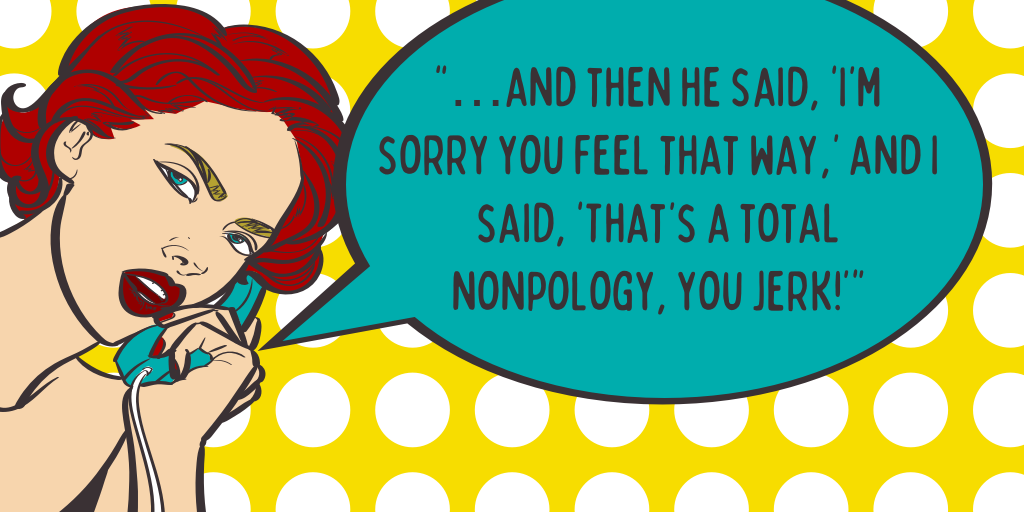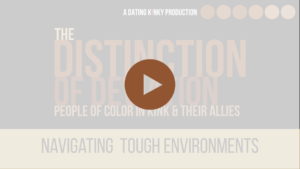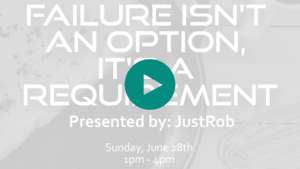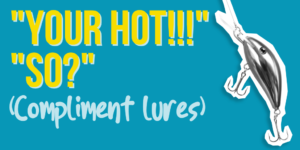It’s amazing to me how many people who really should know better (and do, in other situations) will fall back on this craptaculous non-apology when feeling defensive.
And will defend it when they do, despite that they will know instantly that it’s a non-apology (nonpology) when it’s directed at them.
And why do I say it’s a nonpology? Because an authentic apology take responsibility for causing harm, and this choice phrase puts all the responsibility on the other person.
Let’s play the nonpology game, and let’s make it physical rather than emotional, to illustrate.
In our example, instead of saying something that may have hurt someone, we have slapped them hard. They say, “Ouch, muthafucka! That hurts, you lover of a syphilitic goat!”
Which would make me laugh, but perhaps I get defensive as well, and so I feel on-the-spot and like I must deflect accusations. So, I could say:
“I’m sorry you feel that way.”
No acknowledgement of the slap, or how I did it. Just a focus on their feelings, and how I feel that they are not really ideal.
Or, perhaps I would say:
“I’m sorry your face was right where my hand was swinging. It’s really a shame you didn’t move faster.”
Because it amounts to the same thing.
Neither nonpology takes any responsibility for the action, and it leaves the hurt party feeling dissatisfied, and possibly in a position of having to defend/explain their hurt to try to connect and get the apology they need for closure.
The nonpology person, on the other hand, feels like they have done what was required by saying the words, and the matter should be dropped. They often respond with incredulity and resentment that this is still an issue, creating deeper hurt, and invalidating the other by essentially saying, “I don’t care how you feel, your reality is wrong.”
Nonpologies are fascinating to me, and a part of metaepistemology, which is a great field of study I’m examining.
I’ve decided to do a series of writings on nonpologies (this is my first), to examine the ones that are commonly used, and why they aren’t actually apologies, so that we can eliminate them from our own relationship interactions, and spot them when they are offered to us, personally, professionally, and politically.
What is your experience with the “I’m sorry you feel that way” nonpology?










